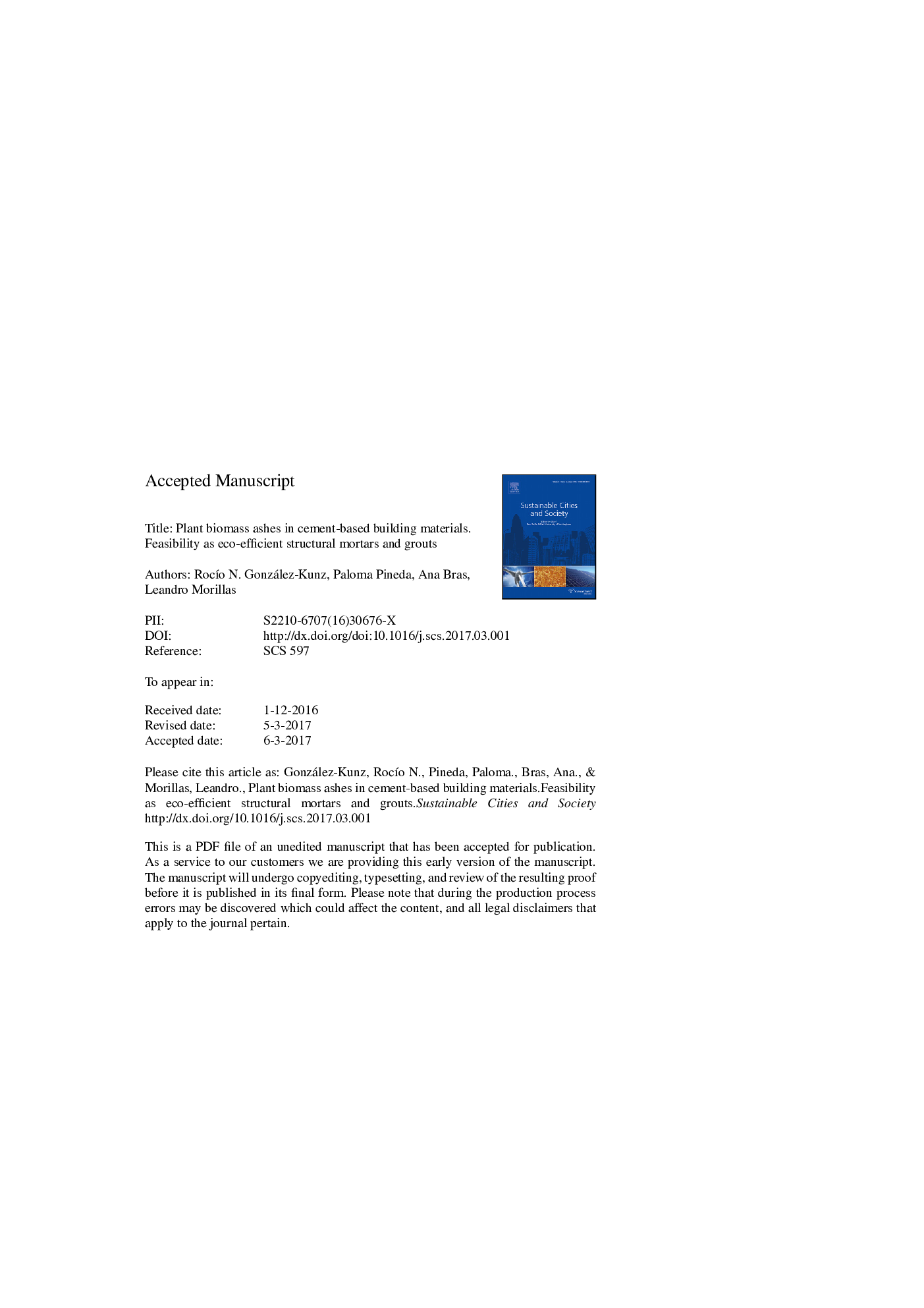| Article ID | Journal | Published Year | Pages | File Type |
|---|---|---|---|---|
| 4928059 | Sustainable Cities and Society | 2017 | 49 Pages |
Abstract
The use of plant biomass ash, as partial replacing binder in cement-based structural mortars or grouts, is an interesting eco-friendly alternative within the building industry. Besides, recycling those ashes makes possible to reduce the polluting wastes that are accumulated in landfills, improving sustainability. On the basis of the data obtained from the literature, this paper analyses the feasibility of using plant biomass ashes in eco-efficient structural mortars or grouts. The research focuses on issues that are directly related to the pollution mitigation and to the structural performance. Physical-chemical properties (pozzolanic activity and mechanical characteristics), rheological behaviour, setting times and drying shrinkage, durability and environmental features are analysed. In addition, the global warming potential and embodied energy of the plant biomass ashes- based mixtures are calculated, assuming that they will be used to grout hollow concrete units (CMUs), in order to obtain green grouted blocks. Advantages and disadvantages of each waste as cement substitute are highlighted. Besides, the properties or characteristics that require additional research are pointed out (e.g. durability and environmental impact). Conclusions from this work could be used to foster further research on the use and development of those eco-efficient building materials.
Keywords
Related Topics
Physical Sciences and Engineering
Energy
Renewable Energy, Sustainability and the Environment
Authors
RocÃo N. González-Kunz, Paloma Pineda, Ana Bras, Leandro Morillas,
